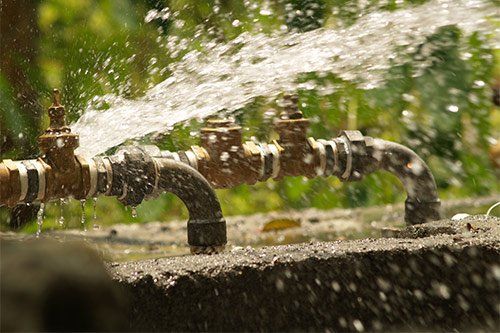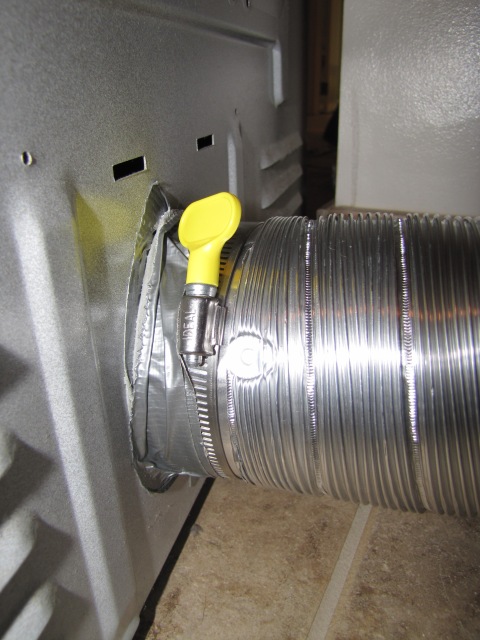The Top 5 Recurring Water Leak Factors
The Top 5 Recurring Water Leak Factors
Blog Article
The publisher is making a number of good points on the subject of How to Find and Prevent Water Leaks in Your Home in general in this post on the next paragraphs.

"Beware of little expenses. A small leakage will certainly sink a fantastic ship." - Benjamin Franklin.
He couldn't have been more ideal since water leaks in our residences result in a waste of sources, enhancing our water costs. This increase could seem minimal at first, it can lead to substantial expenditures that can damage your financial institution. Other than a rise in costs, water leaks additionally create unwanted natural growth, structural damages, and also even electrical threats.
If you have a water leak isn't always easy due to being unable to see many of the pipework in your residence, figuring out. If you have had a rise in your water costs recently, noticed water stains on wall surfaces as well as ceilings, smelt lousy smell, etc. You may intend to think about requesting plumbing services to get it had a look at.
There are several causes of water leakages, as well as we have compiled the usual factors below. Check to see if you have had associated issues in your home lately.
Obstructed drains pipes
Food fragments, dirt, and grease can trigger blocked drains and also obstruct the flow of water in and out of your sink. If undealt with, raised stress within the rain gutters can cause an overflow as well as end up breaking or rupturing pipes. To avoid blocked drains in your house, we recommend you to avoid putting fragments down the tubes as well as regular cleaning of sinks.
High water pressure
You saw your residence water pressure is more than common yet then, why should you care? It's out of your control.
It would be best if you cared because your average water pressure must be 60 Psi (per square inch) as well as although your house's plumbing system is developed to stand up to 80 Psi. A boost in water stress can place a pressure on your home pipelines as well as cause cracks, or worse, ruptured pipelines. If you ever before notice that your residence water stress is more than usual, contact a specialist regarding controling it.
Deterioration
As your pipework gets older, it gets weaker and much more susceptible to corrosion after the frequent passage of water via them, which can gnaw at pipes as well as trigger cracks. A visible indicator of rust in your home plumbing system is discoloration and also although this might be hard to identify as a result of the majority of pipelines hidden away. Once they are old to make sure a sound plumbing system, we encourage doing a frequent examination every few years as well as change pipelines
Damaged pipe joints
Pipeline joints are the parts of our plumbing system where the pipes attach. They are the weakest point of our plumbing system. Therefore, they are extra at risk to damage. It is important to keep in mind that even though pipes are made to hold up against pressure and last for some time, they weren't created to last permanently; as a result, they would wear away in time. This wear and tear can bring about splits in plumbing systems. A typical indicator of damaged pipeline joints is excessive noise from taps.
Broken seals
Another source of water leaks in houses is damaged seals of house devices that utilize water, e.g., a dish washer. When such home appliances are mounted, seals are set up around water adapters for easy passage of water through the machine. Therefore, a broken seal can trigger leakage of water when in operation.
With little or no expertise of plumbing, comprehending your residence's plumbing system adequate to repair some of these problems (without repercussion) can be an inconvenience. Get in touch with plumbing professionals in Pittsburgh, Divine Superintendence, Rochester, and also environ today, and they'll make those issues vanish.
He couldn't have actually been a lot more appropriate because water leaks in our houses result in a waste of sources, raising our water expenses. If you have had a rise in your water bills recently, noticed water discolorations on walls and ceilings, scented lousy smell, etc. A rise in water stress can put a stress on your home pipes as well as lead to splits, or worse, burst pipelines. One more reason of water leaks in residences is damaged seals of house devices that use water, e.g., a dishwasher. When such devices are set up, seals are set up around water connectors for very easy passage of water with the device.
5 TIPS IN DETECTING A WATER LEAK IN YOUR HOUSE
Water leaks can be hard to find in your home, yet they can be so common. We rely on water every day in our home, which is why a leak can cause big problems. By detecting them early, you can save money and further damage, getting the problem fixed as soon as possible. Here are 5 tips to help you detect a water leak in your home, so you can contact a plumber straight away and get the issue sorted.
Check your water meter
Many people underestimate the value of the water meter in their home. It can be one of the best ways to tell if you have a leak early on, so you can get on top of it before issues start arising. Start by turning off all the water in your home: taps, washing machine, dishwasher, etc. Now take a look at the meter – if it’s still changing with everything turned off, it’s likely you have a fast-flowing leak that you need to get on top of straight away. If nothing changes, then leave your meter for an hour or two and come back to it. Did it change in this time? It’s likely you have a slower leak, which isn’t as urgent but still handy to get fixed so it doesn’t become a bigger problem.
Keep an eye on your bill
Another good way to detect a leak in your home is by keeping an eye on your water bill. It helps if you have a past bill from the same period of time. You can compare like for like and determine whether your water usage has increased significantly. If it has, there may be a leak in your system that you haven’t picked up before. A professional plumber can check through all of your pipes and determine where it is coming from.
Look for damage
If you have a leak inside your home, you will notice damage over time. Take a look at your showers and bathtubs and note whether any of the tiles surrounding the area seem to be discoloured or damaged in any way. There may be water stains, mould or peeling material that has resulted from a build up of moisture over time. Make sure you take a look under sinks at the back of cupboards that don’t get accessed regularly. This is where damage can go unnoticed and build up over periods of time.

We hope you enjoyed reading our article about How to Find and Prevent Water Leaks in Your Home. Thanks a lot for finding the time short article. Loved our piece? Please share it. Help somebody else discover it. Thanks a lot for your time invested reading it.
Top-notch service? Dial here. Report this page